Choosing the right dog breed for your family can transform your home, especially if you want a large companion that keeps shedding to a minimum. Large dogs that don’t shed—or shed very little—are ideal for allergy sufferers and anyone who prefers less fur cleanup around the house. While no dog is completely non-shedding, certain breeds produce far less hair and dander, making them excellent choices for tidy living spaces.
This guide explores top large dogs that don’t shed much, their unique coats, and essential care tips. If you’re researching breeds with minimal shedding, check out pictures of dogs that don t shed hair for visual inspiration.
Understanding Dog Shedding and Hypoallergenic Breeds
Dog shedding occurs when old hair falls out to make way for new growth, but it’s often the dander—tiny skin flakes—that triggers allergies. These flakes stick to fur and spread through the air. According to sources like WebMD, reactions stem from proteins in saliva, urine, and dander rather than fur alone.
Hypoallergenic breeds aren’t 100% allergen-free but shed less, reducing dander dispersal. Short-coated dogs can still cause issues if they produce excess dander, while low-shedding large breeds with single-layer or curly coats fare better. Regular grooming is key to managing this.
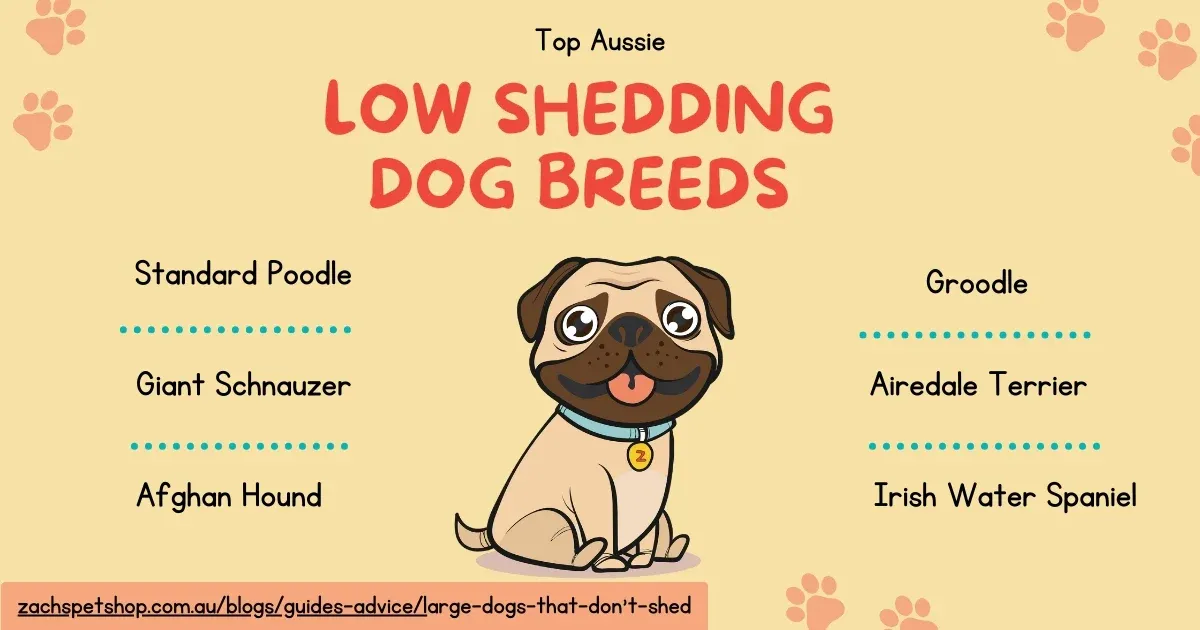 A cartoon pug surrounded by suggestions of large low-shedding dog breeds
A cartoon pug surrounded by suggestions of large low-shedding dog breeds
Top Large Dogs That Don’t Shed Much
Here are standout large dog breeds known for minimal shedding. Individual variation exists, influenced by genetics, diet, and environment, so always meet the dog first. These breeds often need grooming to prevent matting, but they reward with loyalty and low fur mess.
Standard Poodle
Standard Poodles are intelligent, versatile giants standing up to 24 inches tall and weighing 45-70 pounds. Their dense, curly single-layer coat traps hair instead of releasing it, making them one of the best large dogs that don’t shed. Professional grooming every 4-6 weeks keeps the iconic clips neat and skin healthy.
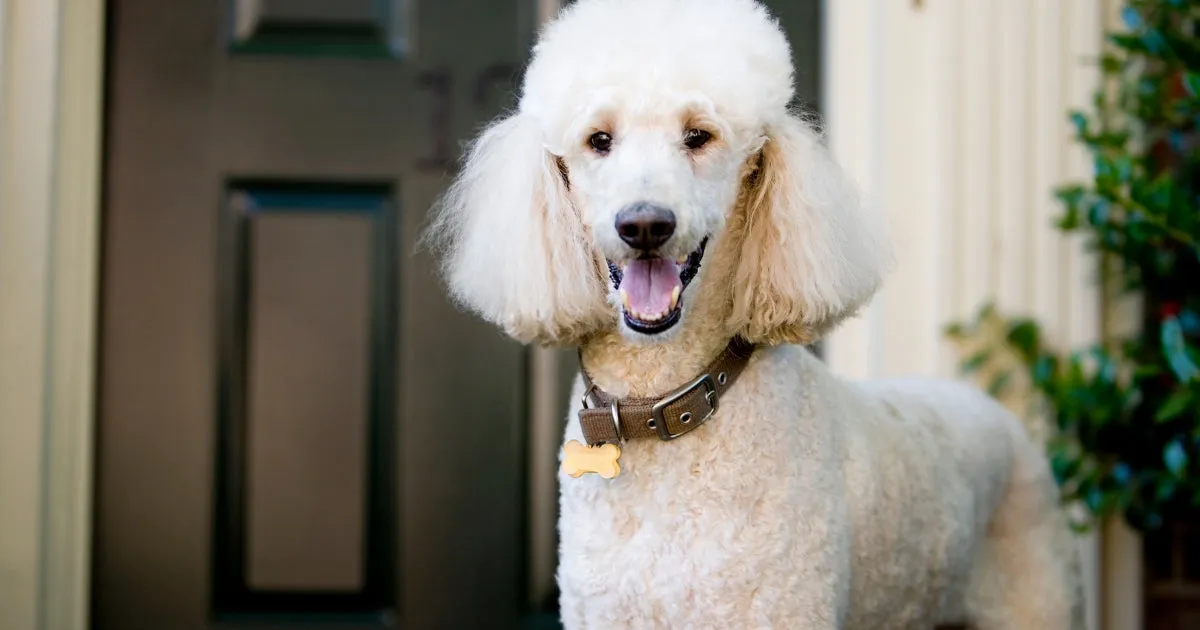 A white Standard Poodle standing facing the camera looking happy
A white Standard Poodle standing facing the camera looking happy
Giant Schnauzer
This powerful breed, reaching 23-28 inches and 55-85 pounds, serves as a calm guardian with a wiry coat that sheds minimally. Brushing 2-3 times weekly and trims every two months maintain its texture. They’re trainable and protective, perfect for active families. For popular options in various regions, see top 10 breeds of dogs in india.
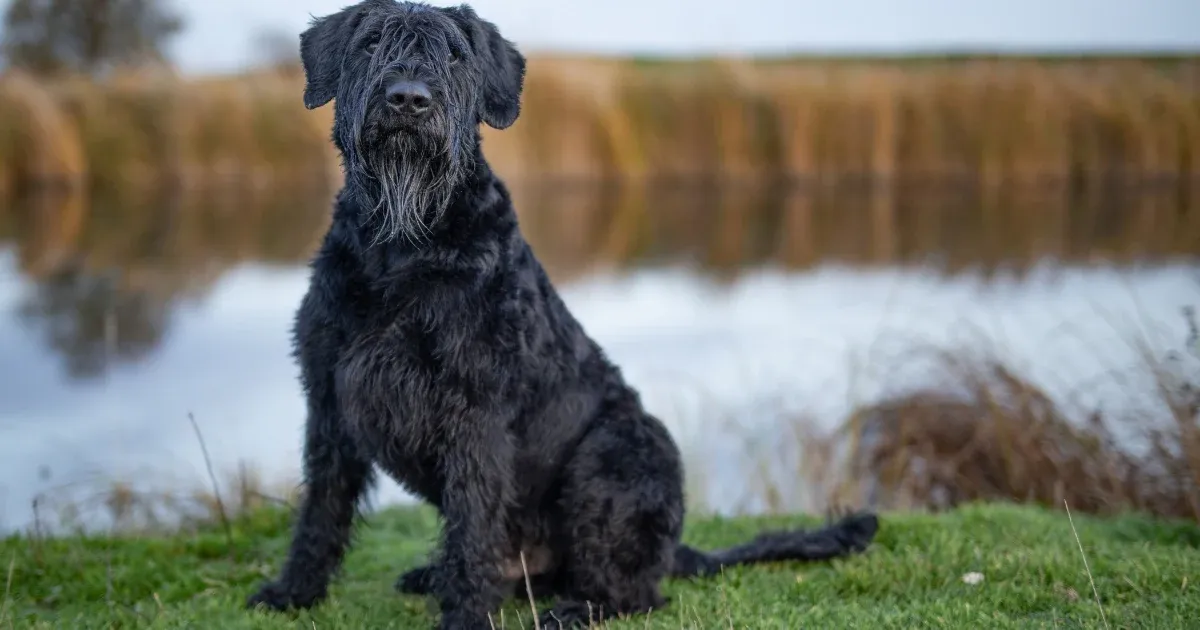 A large black Giant Schnauzer standing next to a lake
A large black Giant Schnauzer standing next to a lake
Airedale Terrier
As the largest terrier, Airedales weigh 50-70 pounds with a wiry, short coat that resists shedding. Their playful energy suits outdoor enthusiasts, but daily brushing prevents tangles. They’re bold yet affectionate, earning the nickname “King of Terriers.”
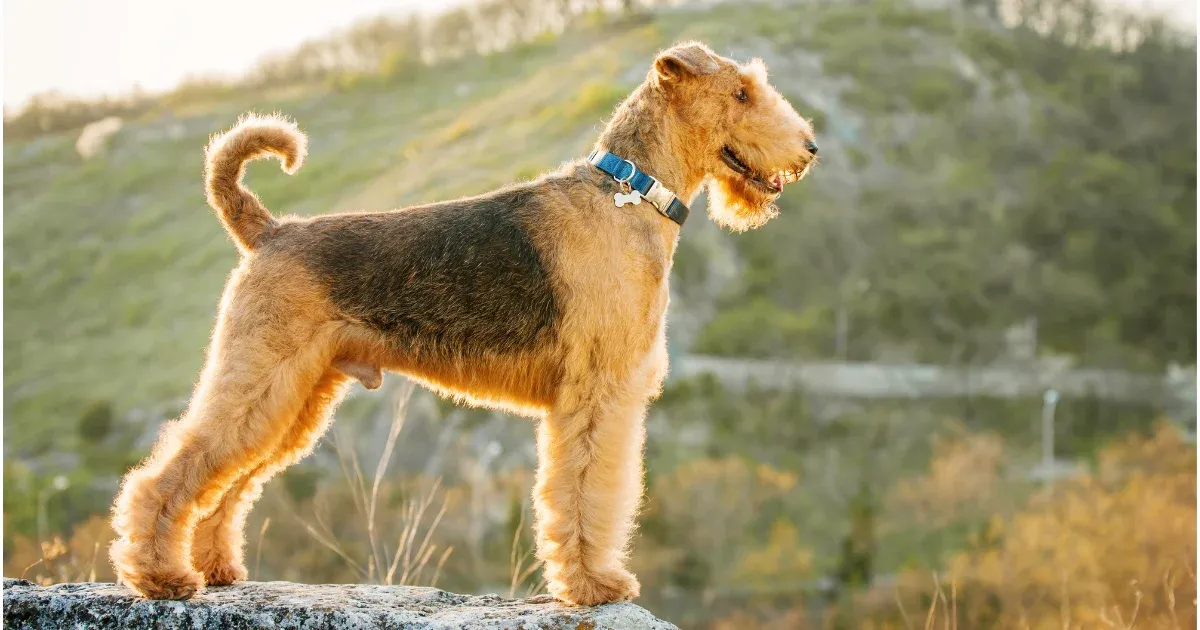 A brown and black Airedale Terrier with a square shaped head standing side on in front of a mountain
A brown and black Airedale Terrier with a square shaped head standing side on in front of a mountain
Groodle
A Golden Retriever-Poodle cross, Groodles often grow large (40-90 pounds) with wavy or curly fur that grows continuously rather than sheds. Affectionate and adaptable, they thrive with grooming every 6-8 weeks. Their hypoallergenic traits make them family favorites.
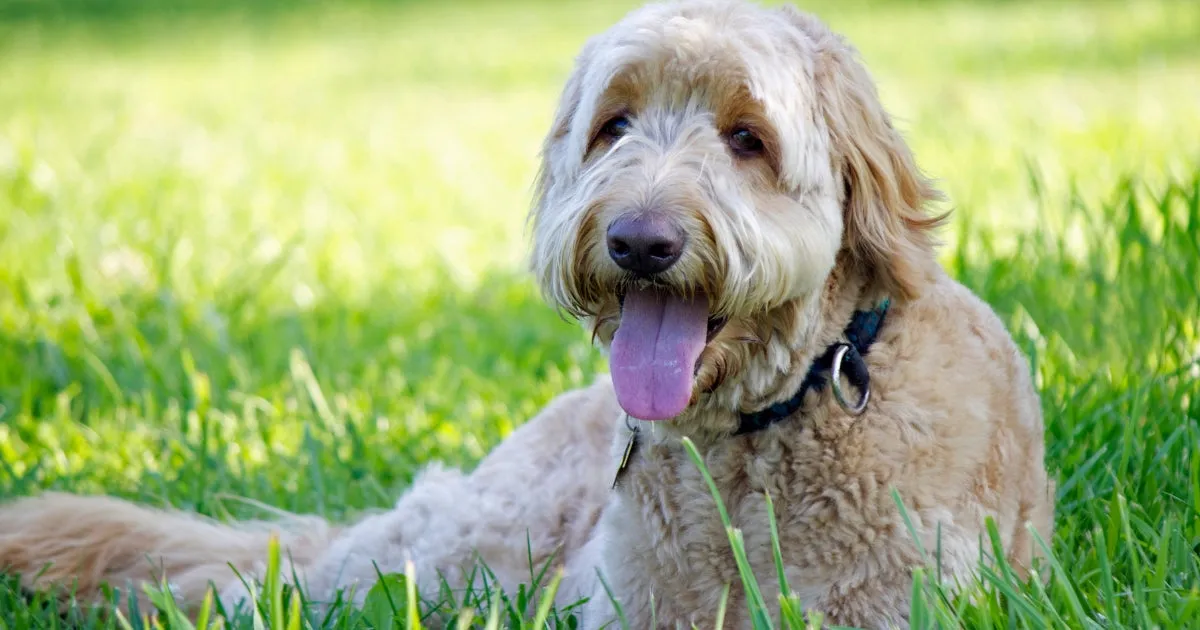 An apricot teddy bear looking Groodle laying in grass facing the camera with its tongue out
An apricot teddy bear looking Groodle laying in grass facing the camera with its tongue out
Afghan Hound
Despite glamorous long locks, Afghan Hounds shed surprisingly little due to silky hair that doesn’t loosen easily. At 50-60 pounds and up to 27 inches tall, they’re elegant sighthounds needing weekly brushing. Ideal for those wanting grace without constant fur tumbleweeds.
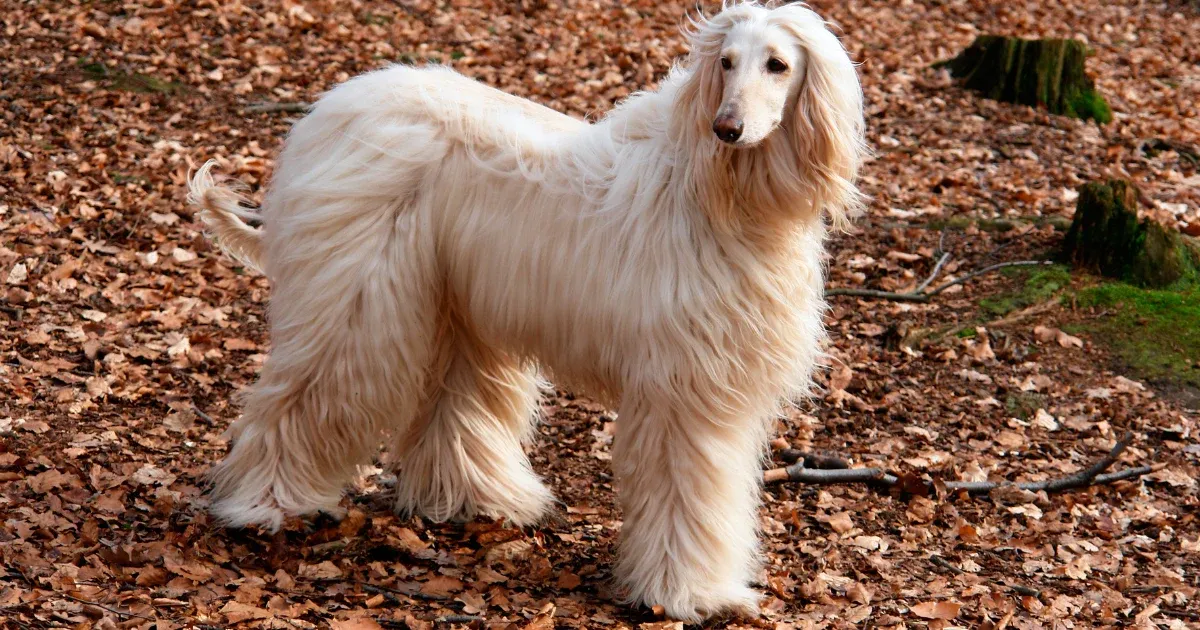 A beige Afghan Hound with long flowing hair
A beige Afghan Hound with long flowing hair
Irish Water Spaniel
This curly-coated water lover weighs 45-68 pounds with a dense, low-shedding coat perfect for swimming. Grooming prevents mats, and their playful spirit energizes families. Veterinary experts note their coat’s water resistance reduces drying time and allergen spread.
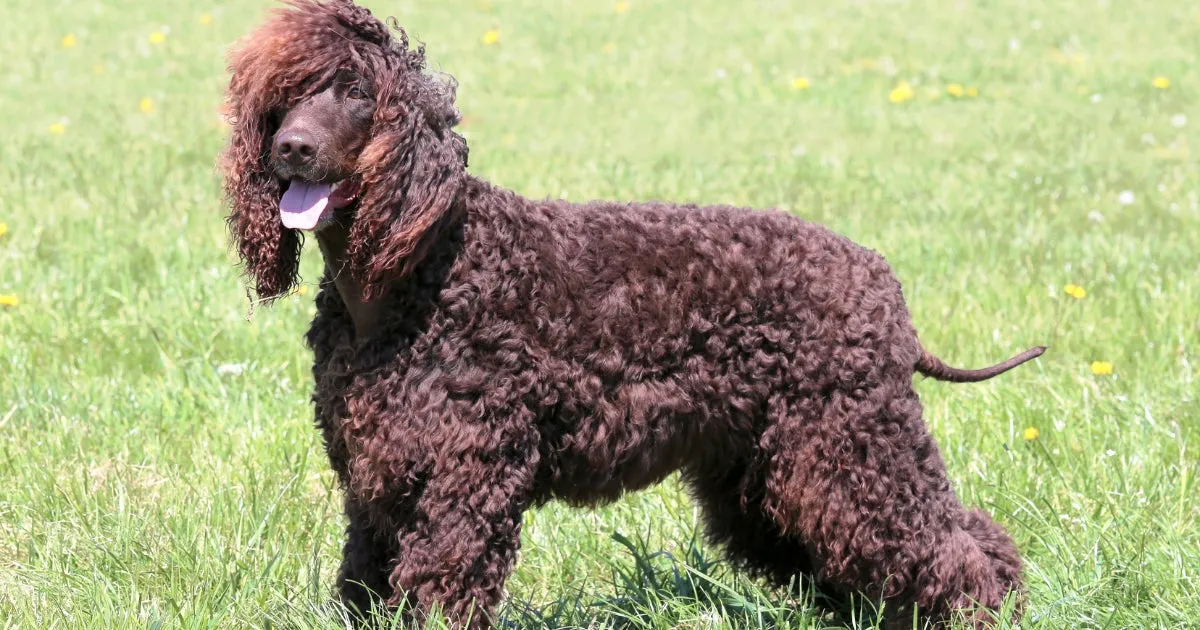 A brown Irish Water Spaniel with curly dense fur
A brown Irish Water Spaniel with curly dense fur
Lagotto Romagnolo
Originating from Italy, these 24-35 pound curlies (often larger specimens) have non-shedding woolly coats suited for truffle hunting. Loyal and energetic, they need regular brushing. Their affectionate nature shines in homes with space for play.
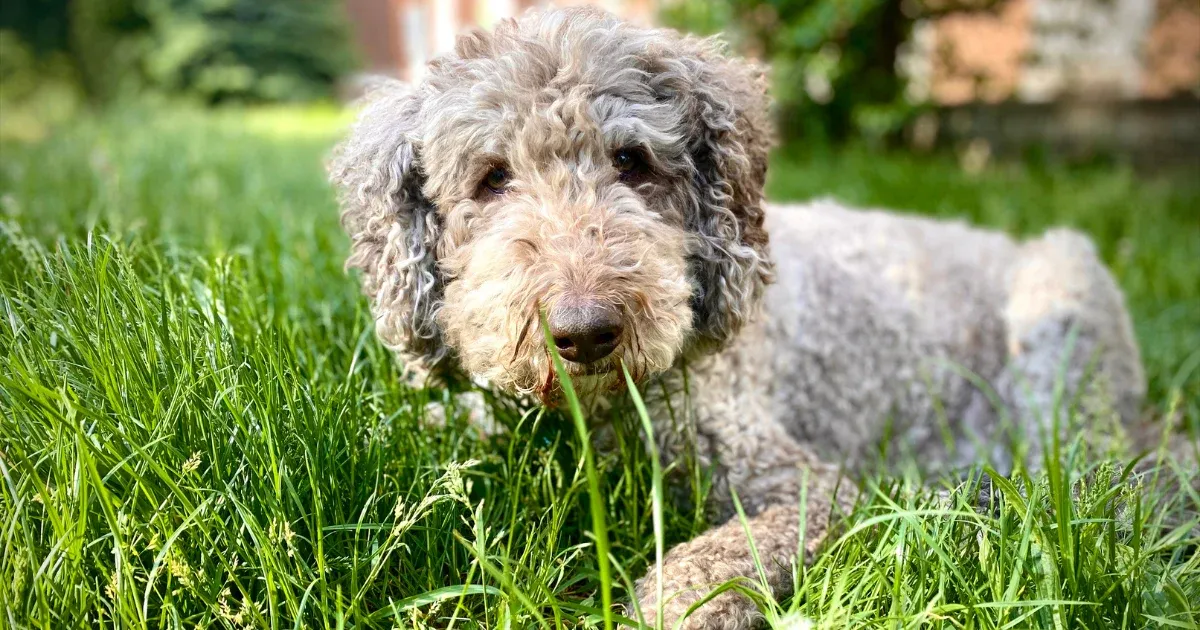 A grey and brown Lagotto Romagnolo with a dense curly coat laying on green grass
A grey and brown Lagotto Romagnolo with a dense curly coat laying on green grass
Portuguese Water Dog
Famously the Obama family choice, these 35-60 pound athletes have curly or wavy hypoallergenic coats. They excel in active homes with swimming access, requiring trims to avoid matting. Low shedding pairs with high trainability.
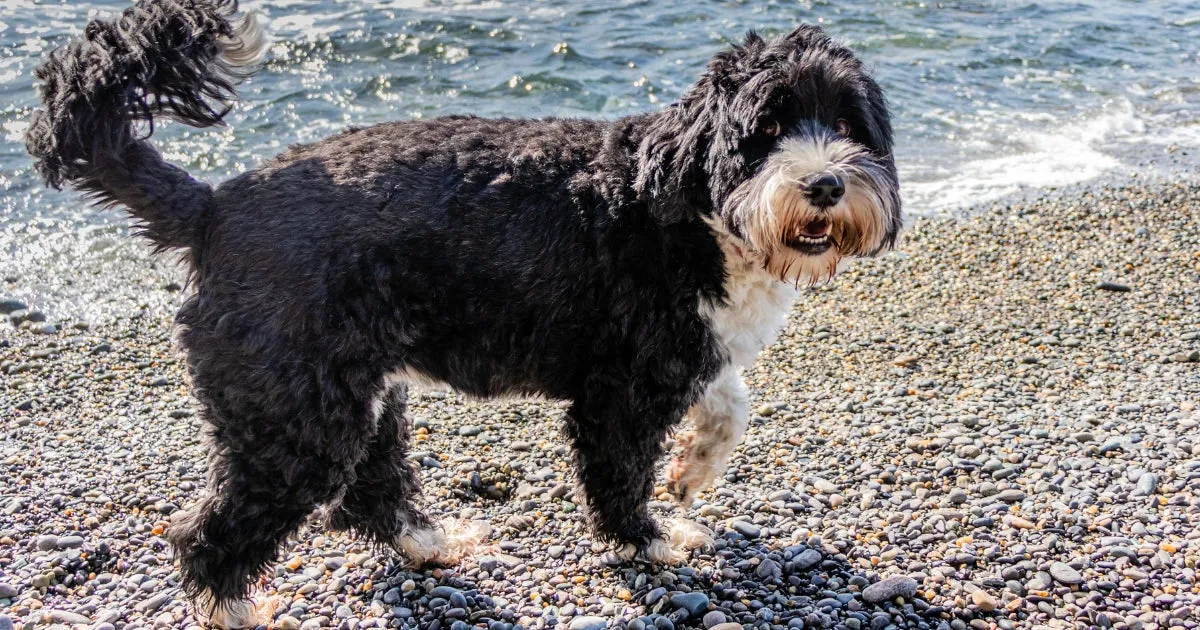 A black curly dog with a white chest and beard walking along the edge of the water
A black curly dog with a white chest and beard walking along the edge of the water
Komondor
The Hungarian livestock guardian boasts a corded white coat that’s virtually non-shedding, forming natural dreadlocks. At 80-100 pounds, they demand dedicated grooming but offer unmatched protection. Socialize early for family life.
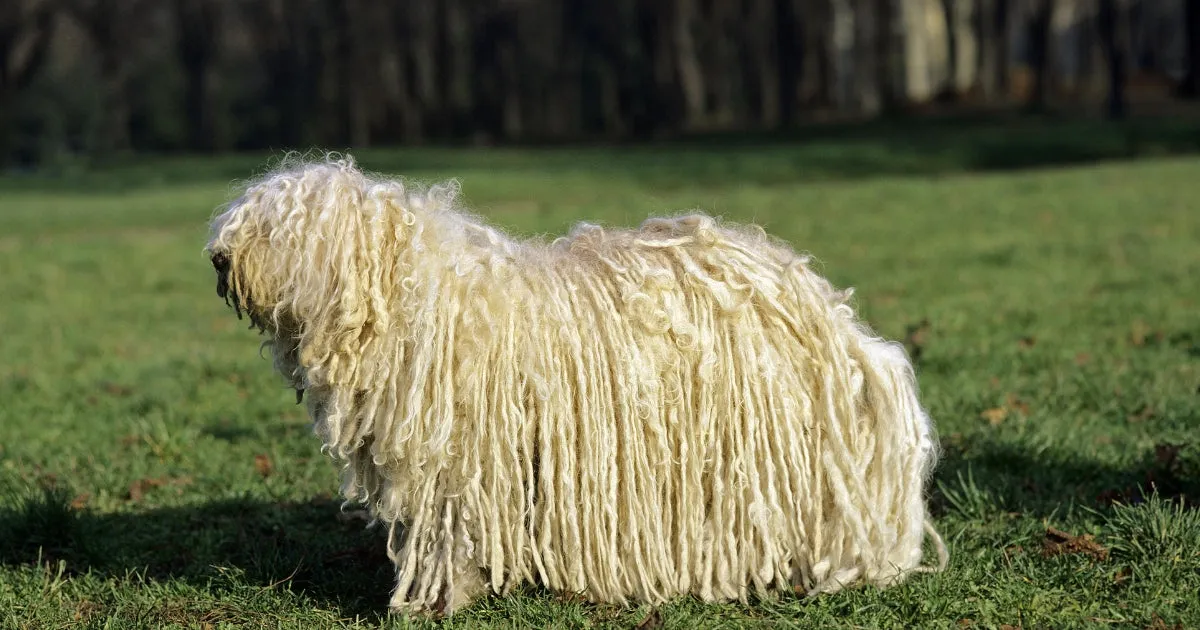 A Komondor dog with a distinctive white corded coat
A Komondor dog with a distinctive white corded coat
Peruvian Inca Orchid
This ancient breed varies from hairless to coated, with smooth short fur shedding minimally. Agile at 26-50 pounds, they need skin protection from sun and cold. Affectionate and rare, they’re low-maintenance groomers. Explore more with good dogs that dont shed a lot.
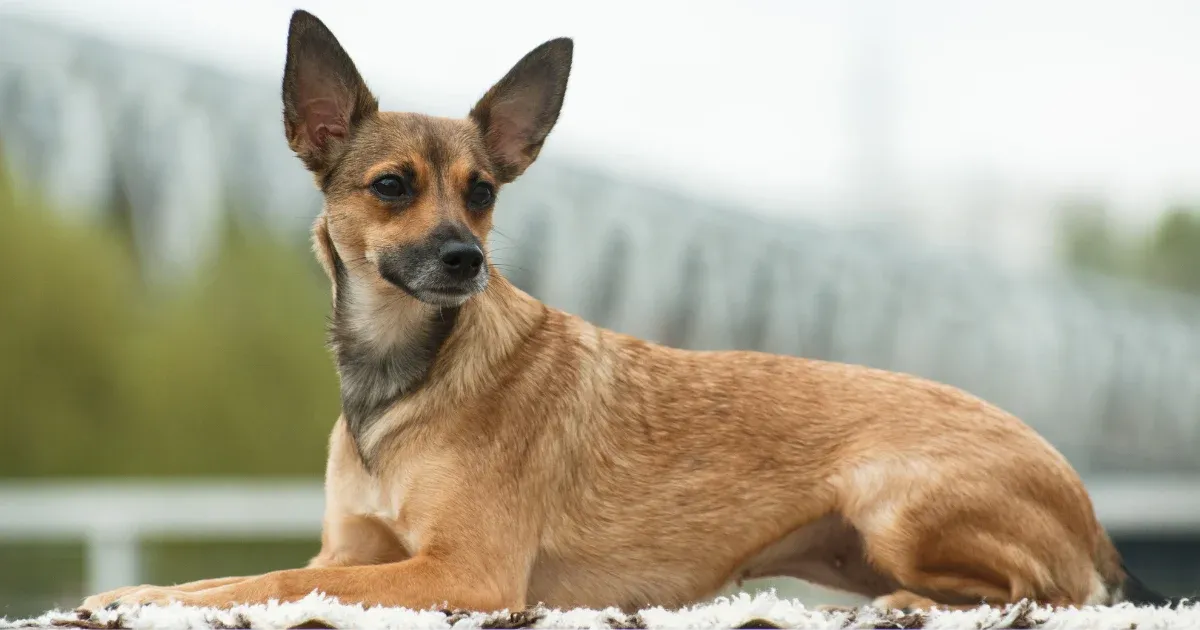 A short haired smooth brown coated dog with large pointy ears
A short haired smooth brown coated dog with large pointy ears
Wirehaired Pointing Griffon
Hunters’ favorites at 35-70 pounds, their wiry coat sheds less than double-coated peers. Daily brushing and pro grooms keep it mat-free. Versatile and eager-to-please.
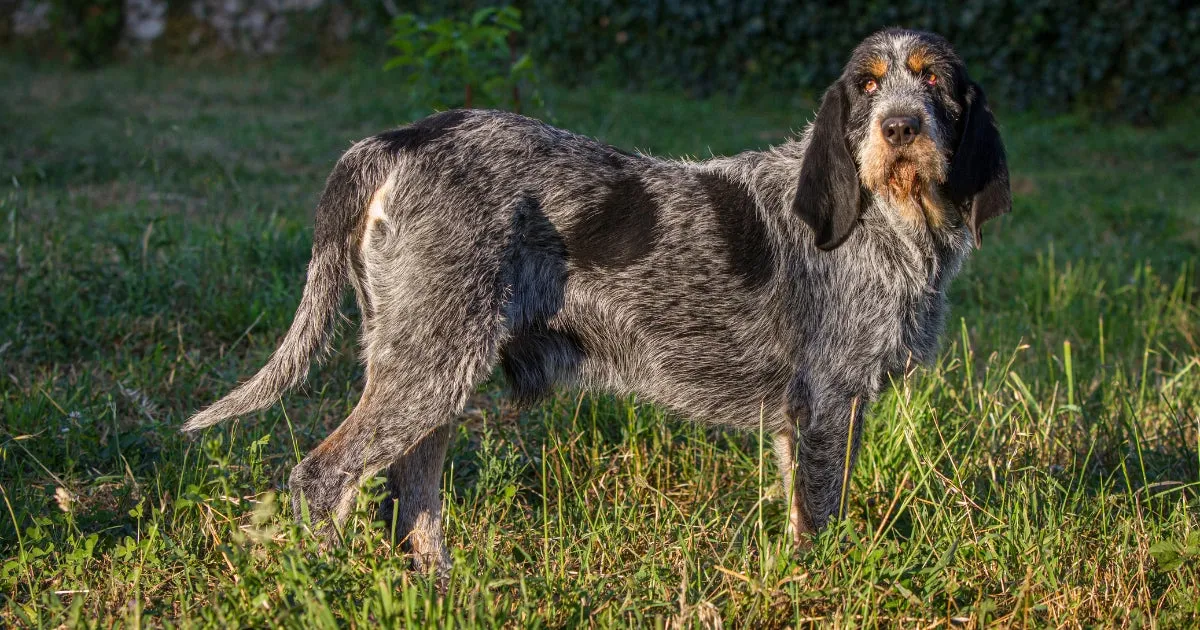 A grey dog with large black patches and big black floppy ears
A grey dog with large black patches and big black floppy ears
Grooming Tips for Low-Shedding Large Dogs
Low-shedders need consistent care to stay healthy. Brush 3-5 times weekly to distribute oils, remove debris, and prevent mats—use slicker brushes for curls, pin brushes for wires. Bath monthly with gentle, vet-recommended shampoos to avoid drying skin.
Trim nails biweekly, clean ears weekly, and wipe paws post-walks to cut allergens. Tools like deshedding gloves help. Consult vets like those from the American Kennel Club for breed-specific advice. For pricing insights, visit all types of dogs price in india.
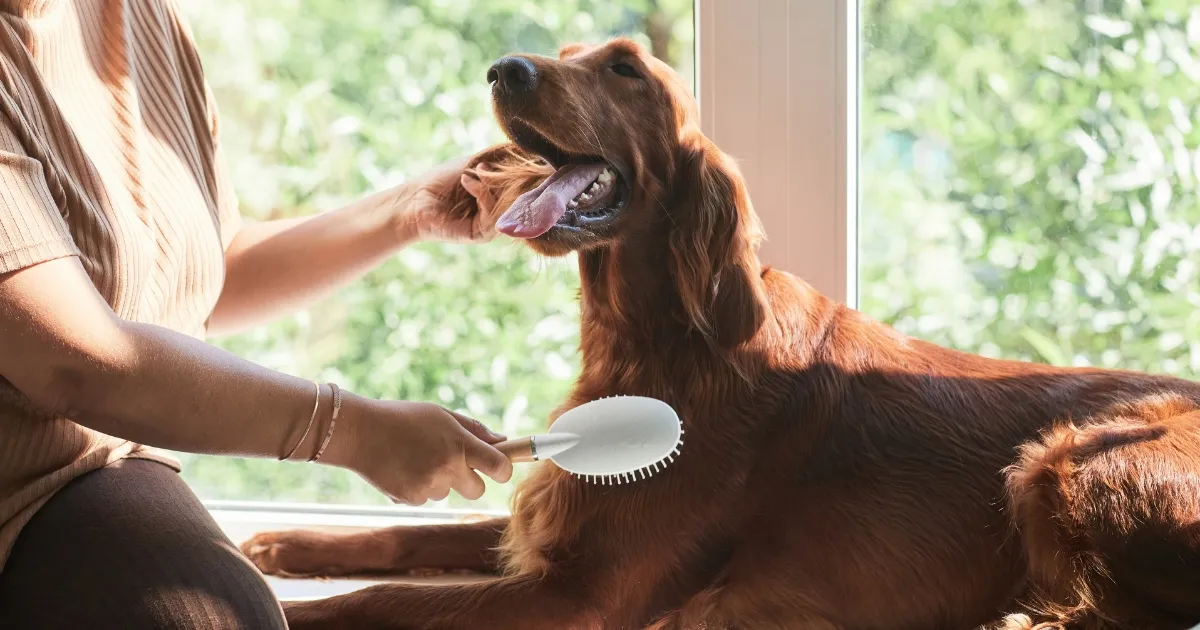 Grooming tips illustration for dogs that don't shed
Grooming tips illustration for dogs that don't shed
FAQs About Large Dogs That Don’t Shed
What is the least shedding large dog?
Breeds like Standard Poodle, Giant Schnauzer, and Komondor top the list, though all shed minimally with grooming.
What is the largest non-shedding dog breed?
Standard Poodles often claim this, at up to 70 pounds with continuous-growing curly coats.
What is the calmest large low-shedder?
Many, like Irish Water Spaniels or Standard Poodles, offer gentle temperaments with moderate exercise needs.
Which low-shedders suit various climates?
Poodles, Schnauzers, and Groodles adapt well globally with proper care.
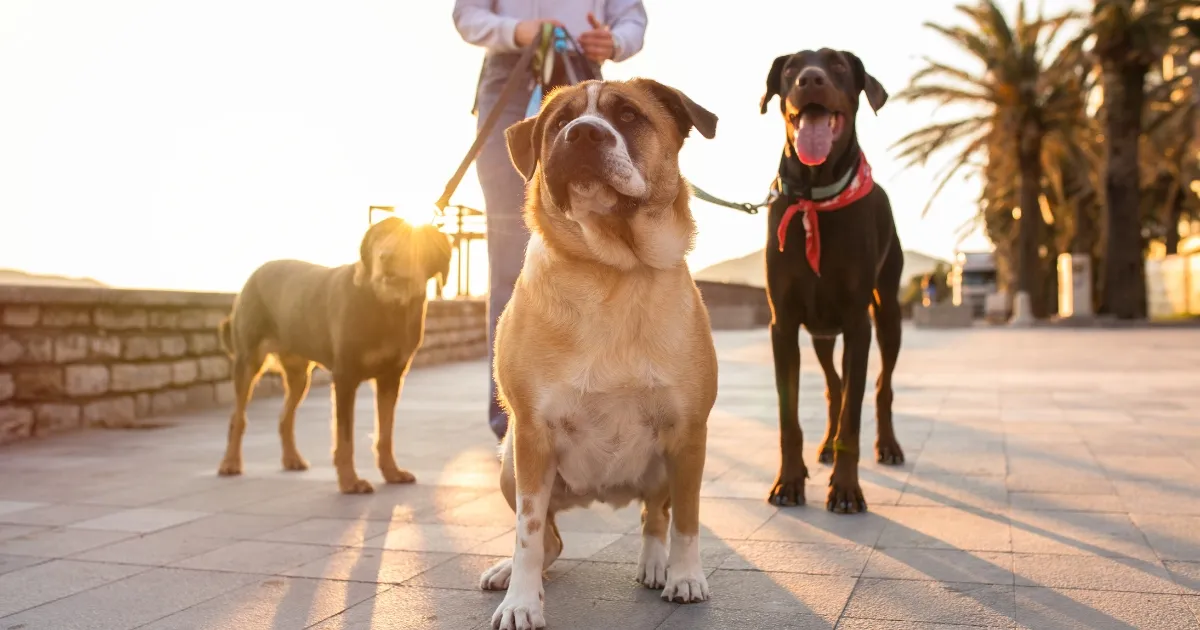 Illustration understanding low-shedding dogs
Illustration understanding low-shedding dogs
Final Thoughts on Large Dogs That Don’t Shed
Large dogs that don’t shed much combine size, loyalty, and cleanliness, ideal for allergy-prone homes. Prioritize grooming, exercise, and vet checkups for their well-being. Breeds like the Standard Poodle or Portuguese Water Dog build strong bonds with minimal mess.
Ready to welcome one? Research local breeders, consider adoption, and consult a veterinarian. Explore more breed guides for the perfect match!
References
- WebMD: Hypoallergenic Dogs
- American Kennel Club breed standards
- Veterinary advice from certified experts
